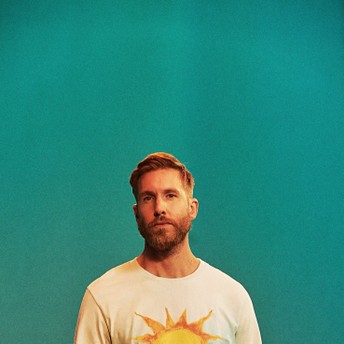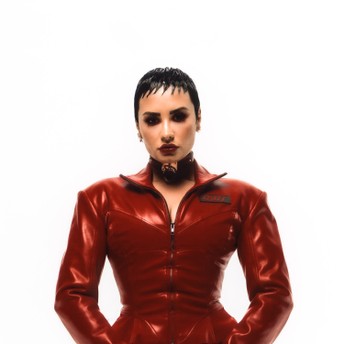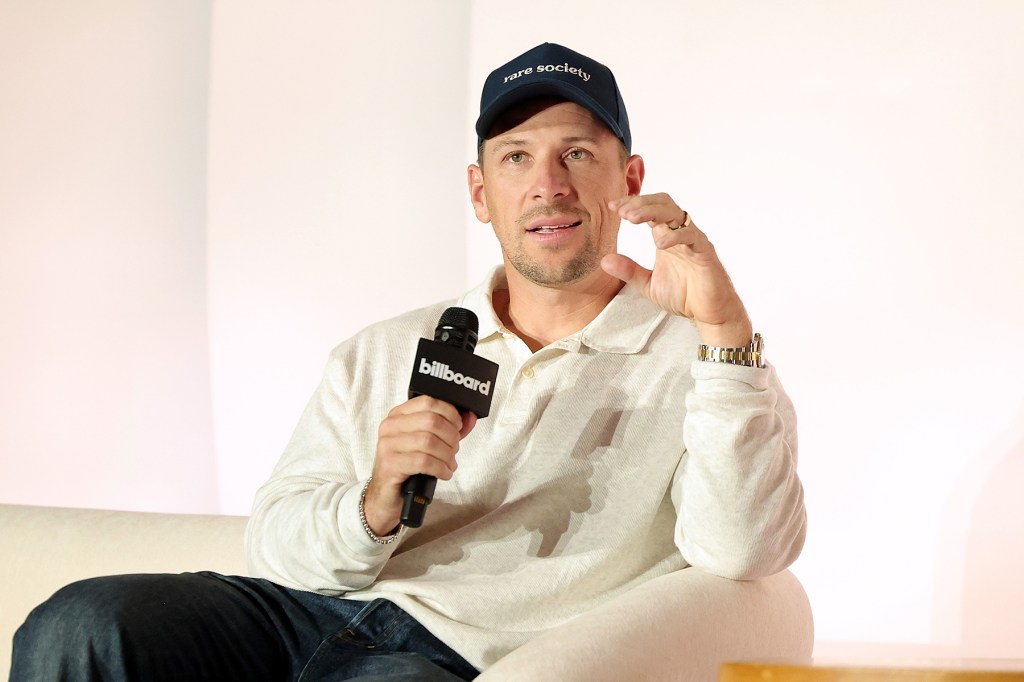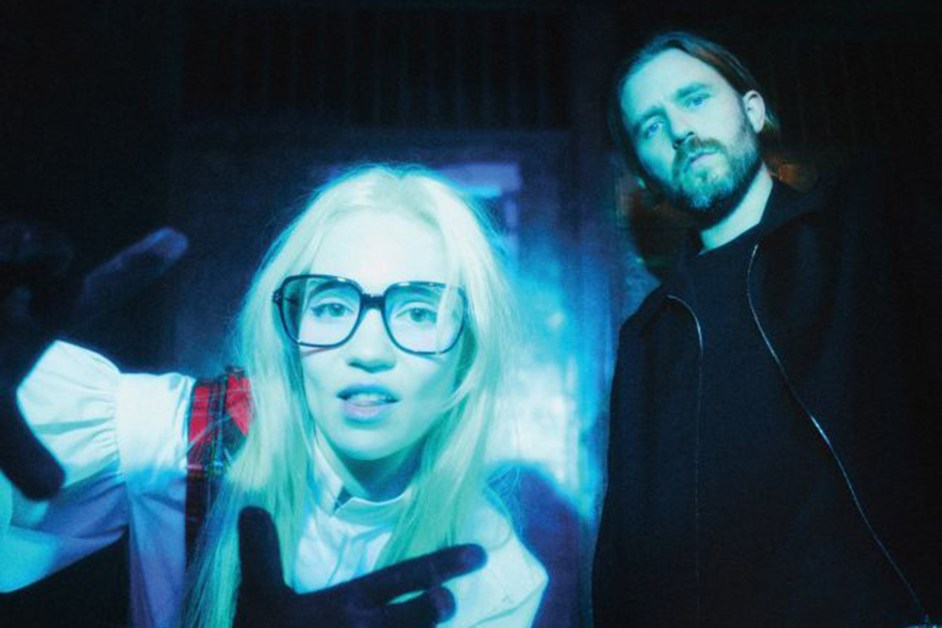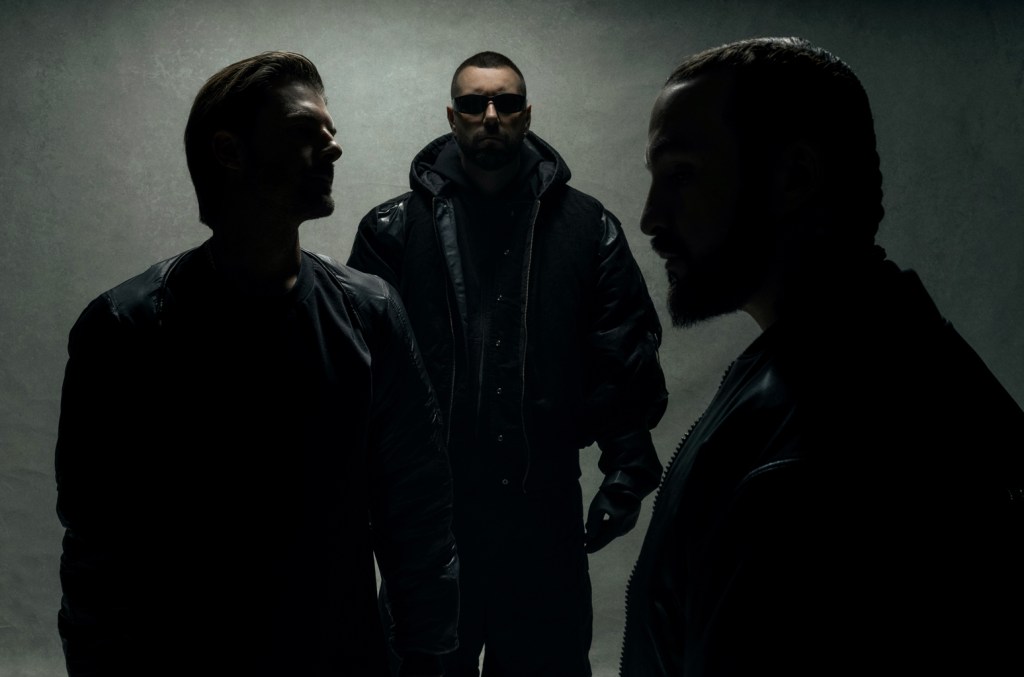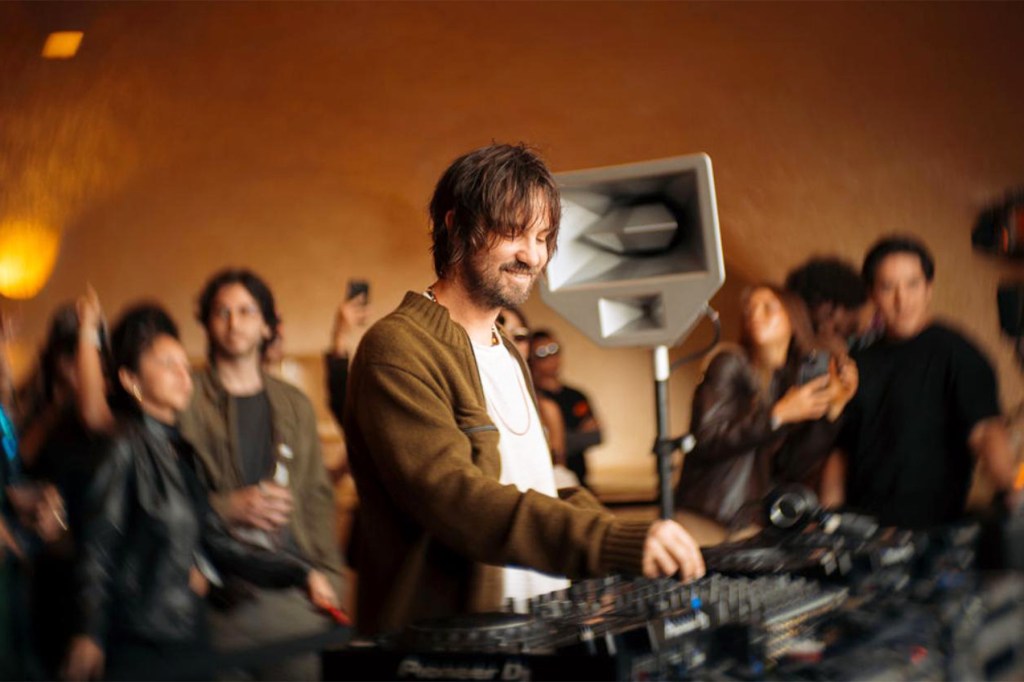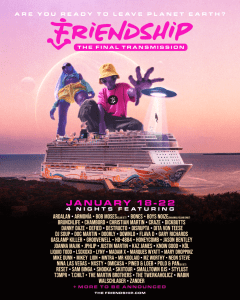genre electronic
Page: 3

Trending on Billboard
Avicii‘s second album Stories was released on Oct. 2, 2015, generating hits like “The Nights” and “Waiting For Love” and reaching No. 17 on the Billboard 200, where it spent five weeks.
Now, a new documentary mini-series is taking fans into the heart of the LP’s creation process. Stories on Stories, a three-part series screening on YouTube, presents never-before-shared archival footage of the 2014 and 2015 studio sessions that generated some of the music on Stories.
Out today (Nov. 6), the lead episode shows the Swedish producer in a pair of studio sessions with Alex Ebert, the songwriter and musician widely known as the lead singer of Edward Sharp and the Magnetic Zeros, as the pair work on the instrumentation, melody and lyrics that would ultimately form “For a Better Day.” (This song spent 17 weeks on Hot Dance/Electronic Songs beginning in September of 2015.)
The clips find a relaxed atmosphere in the studio as the pair hash out music and share some laughs in the process. “What I loved about Tim and was the first thing I really got to understand about him is how meticulous he is about the specifics of a melody,” Ebert says in the doc. “It’s almost like he was really in tune with the harmonics of the universe, where a melody should go, where a melody wants to go.” Watch an exclusive clip from the episode below.
The episode is careful to include an archival clip of Avicii himself saying that “I have every session filmed, we’re going to do something with that so people can see what actually goes on the studio. Maybe like a YouTube series.” The episode also states that since 2019, the family of the late producer born Tim Bergling has been archiving material from his laptop and drives to preserve moments from his life and career as Avicii.”
The other two Stories On Stories episodes will feature artists and producers including Gavin DeGraw, Rami Yacoub and Wyclef Jean, altogether exploring the origins of of songs like “Sunset Jesus” and more. The second and third episodes will premier on Dec. 4 and Jan. 1, respectively.
Bergling died by suicide on April 20, 2018. The seven years following his death have seen a wake of commemorative projects including a 2019 posthumous album, a biography, a photo book, a new track released in May and the Avicii Experience museum in the artist’s hometown of Stockholm.
Stories On Stories is presented by the Avicii Estate and Pophouse, the Swedish entertainment company that acquired 75% of Avicii’s recordings and publishing catalog in 2022.
Trending on Billboard Calvin Harris is returning to Las Vegas. The Scottish producer has locked in a two-year residency at Wynn Las Vegas, where he’ll play the resort’s mega-club XS and its poolside Encore Beach Club. The first three dates at XS will happen Jan. 16, Feb. 13 and Feb. 21, with more shows to […]
Trending on Billboard Demi Lovato earns her first No. 1 album on Billboard’s Top Dance Albums chart, as It’s Not That Deep opens at No. 1 on the Nov. 8-dated list. Released Oct. 24 via DLG Recordings/Island/Republic Records, the set debuts with 31,000 equivalent album units earned in the United States in the week ending […]
Trending on Billboard
What’s the future of the kiss cam at concerts? Nick Groff, manager of German electronic producer Bunt., offered some insight when he took the stage at the Billboard Live Music Summit on Monday (Nov. 3) in West Hollywood, California.
Speaking with Billboard editor-in-chief Hannah Karp, Groff discussed giving fans control of the cameras capturing crowd footage at shows, an initiative that sparked a viral moment at an Oct. 18 Bunt. show at The Shrine Los Angeles when one of the phones was used by a couple to show themselves kissing.
“We didn’t plant that kiss,” said Groff. “We gave that phone out to fans.”
For Bunt. and his team, giving fans the ability to film themselves for the big screens at shows is a way to incorporate fans into the performances, especially as Bunt.’s concerts have grown bigger and the team has had to put barricades around the producer for crowd control.
“We had this really awkward problem where we got to this place by celebrating the fan, but how do we bring the fan into a larger show?” Groff said during the Summit.
To address the issue, the Bunt. team linked with a technology company, who reported that they’d created a system that allows specially prepared iPhones to be linked with venue systems, so that footage captured on these phones can be broadcast on the venue’s big screen. At the Oct. 18 Shrine show, these phones were given to longtime Bunt. fans that the artist and his team had a pre-existing relationship with.
The goal with the initiative, Groff said, is “celebrating the fan by capturing them in their moment.”
The Summit discussion referenced the now-infamous viral moment that happened at an August Coldplay concert, where a couple engaged in an affair were captured on a kiss cam. “Although the novelty of that moment, which was scandalous, happened, the reality is that the kiss cam was a novelty idea at live events because it actually celebrated this simple, pure, human emotion of love,” said Groff.
Groff pointed out that this method could also help solve an issue that’s particularly problematic in dance music, where fans stick their phones in the faces of DJs while they’re playing, interrupting the show and affecting the overall mood. This system being employed by the Bunt. team makes it so that phones are now turned back around on audience members, rather than being pointed at artists.
Still, the widespread adoption of this system may be a ways off, as Groff said putting it together was expensive and is technically “really complicated right now.” While the overall system is “still in its infancy in terms of being able to build out,” the team is planning to use it at some of Bunt.’s bigger upcoming dates, including a Nov. 13 set in Munich.
Simply the best new dance tracks of the week.
10/31/2025
Trending on Billboard
The Fifth Element Festival has announced the full lineup for its debut edition.
Leading the bill are Detroit icon Carl Craig, enduring favorite Seth Troxler, techno titan Nicole Moudaber, scene pioneer Danny Tanaglia and minimal techno legend Ricardo Villalobos, along with Dixon, DJ Tennis, Dubfire and more. The bill in total features more than 60 artists; see this complete lineup below.
The Fifth Element happens in Puerto Rico on Jan. 7-13. In addition to the music, the fest will also offer yoga, breathwork, sound baths and other “healing ceremonies and workshops.” This focus on wellness is a core focus of The Fifth Element, which was created by Phillip Pulitano, who also co-founded the longstanding BPM Festival. (Pulitano is no longer involved with BPM.)
Speaking to Billboard about The Fifth Element in May, Pulitano said he came up with the idea during an ayahuasca ceremony, an experience that made him want to create a festival that was about more than just partying.
“I knew I needed to figure out a way to create a hybrid experience in dance culture,” Pulitano said. “Not going for a super hippie vibe that plant medicine can be… but doing something that’s in service and creates a bit more awareness and brings more consciousness to what we’re doing.”
As such, The Fifth Element will also host a Sacred Space, a “wellness sanctuary” being curated by the Above & Below Collective, a group of artists, therapists, facilitators, and health care professionals that will host ceremonial gatherings, guided workshops and integration sessions led by reputable facilitators from a variety of healing traditions.
The Fifth Element is offering both seven and three day passes, both of which are available here. Discounted tickets are being offered to residents of Puerto Rico.
The 5th Element Festival
Courtesy of Get In PR
Trending on Billboard New Year’s Eve 2026 just got more interesting with the announcement that both Swedish House Mafia and Skrillex together with Four Tet will play over two-nights in San Francisco on Dec. 30-31. Both shows will happen at San Francisco’s Pier 80, the same site where the festival Portola has happened annually since […]
Trending on Billboard On Oct. 10, Tame Impala‘s Kevin Parker and an intimately sized group of fans gathered in Mexico City’s magnificent Parque Quetzalcóatl for a DJ set by Parker. Produced by Cercle, the 90-minute set happened in conjunction with the Oct. 17 release of the new Tame Impala album, Deadbeat, a collection of dance […]
Trending on Billboard Earlier this month Fred again.. kicked off his buzzy 10 shows in 10 weeks in 10 cities run, a peripatetic endeavor happening as part of the release of his USB002 project. The English producer is releasing one song from USB002 in tandem with each week’s show, with UBS002 itself being an an […]
Trending on Billboard
Friendship will literally and figuratively sail on into the sunset in 2026, with organizer Gary Richards announcing that the next edition of the dance music cruise will be its last.
The event has dropped the 2026 lineup in tandem with the news, with scene luminaries including Bob Moses, Boys Noize, Polo & Pan, Mary Droppinz, Jason Bentley, Nina Las Vegas, Dita Von Teese, Mikey Lion, Justin and Christian Martin and Richards, who has long performed under his Destructo moniker, all on the bill.
See the complete lineup below, with additional names to be announced in the coming months.
“Friendship: The Final Transmission” will mark the fourth annual edition of Friendship and happens Jan. 18-22, 2026, aboard the Norwegian Joy, which can accommodate approximately 3,800 passengers in addition to crew. The voyage takes off from Miami, travels to Great Stirrup Cay in the Bahamas then sails back to Miami. Tickets and cabin packages are on sale now.
Richards helped forge the rave cruise model when he launched Holy Ship in 2012, with the party at sea an extension of the HARD events brand he also founded. The group of people who returned annually for Holy Ship came to be known as “Shipfam,” with many of them finding their way to Friendship when it started in 2023.
“Almost fourteen years ago, I had a vision to create something different, special and out of this world,” Richards says in a statement. “As a result of that, the Shipfam was born, a reoccurring group of people who would meet annually to travel with us. Our voyagers became a family, one that has shared moments that surpass the test of time and that feel like they’ll echo forever. Maybe this is the last one… or maybe it’s just the beginning of something new as we embark on this final transmission.”

 State Champ Radio
State Champ Radio 